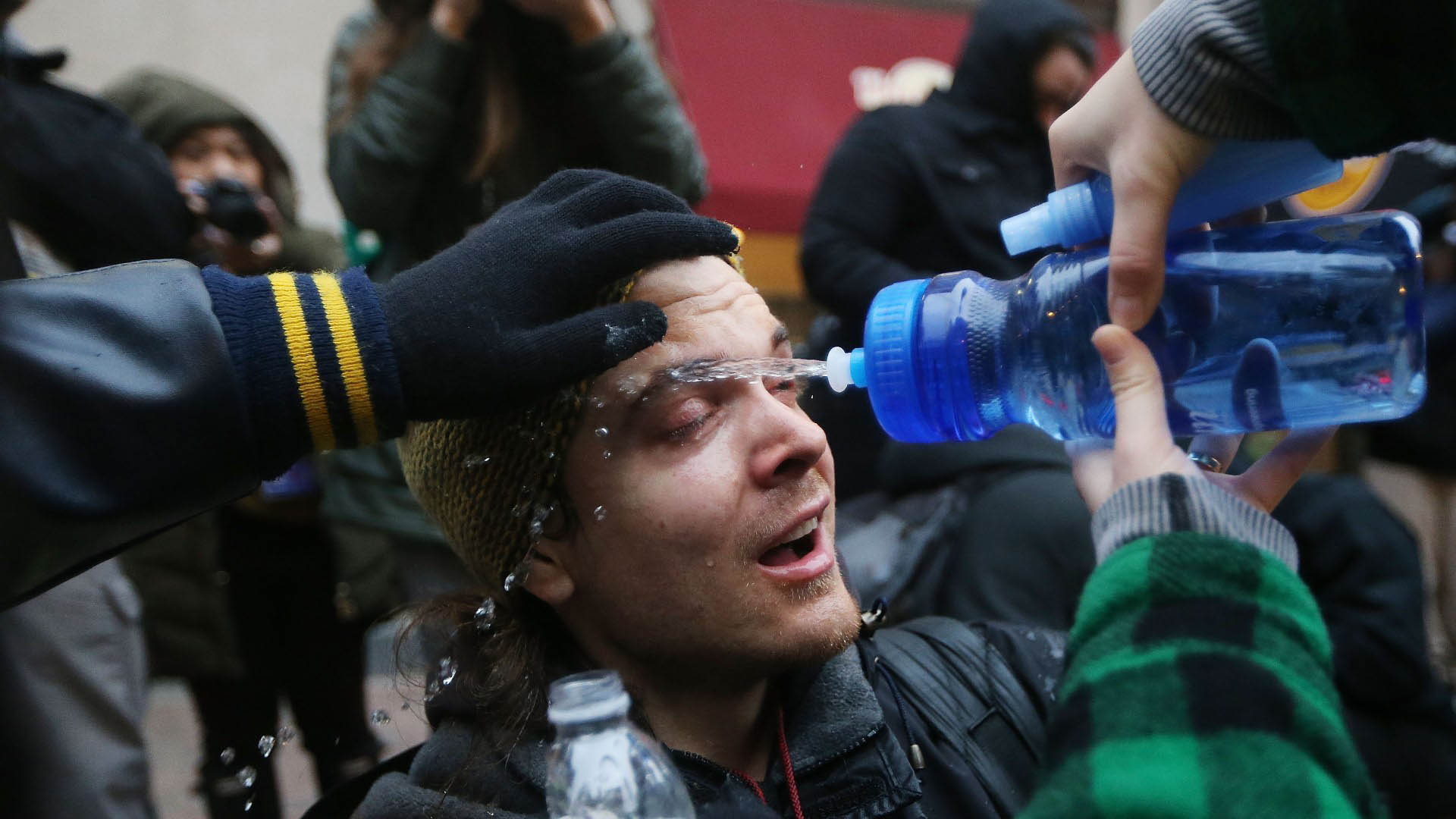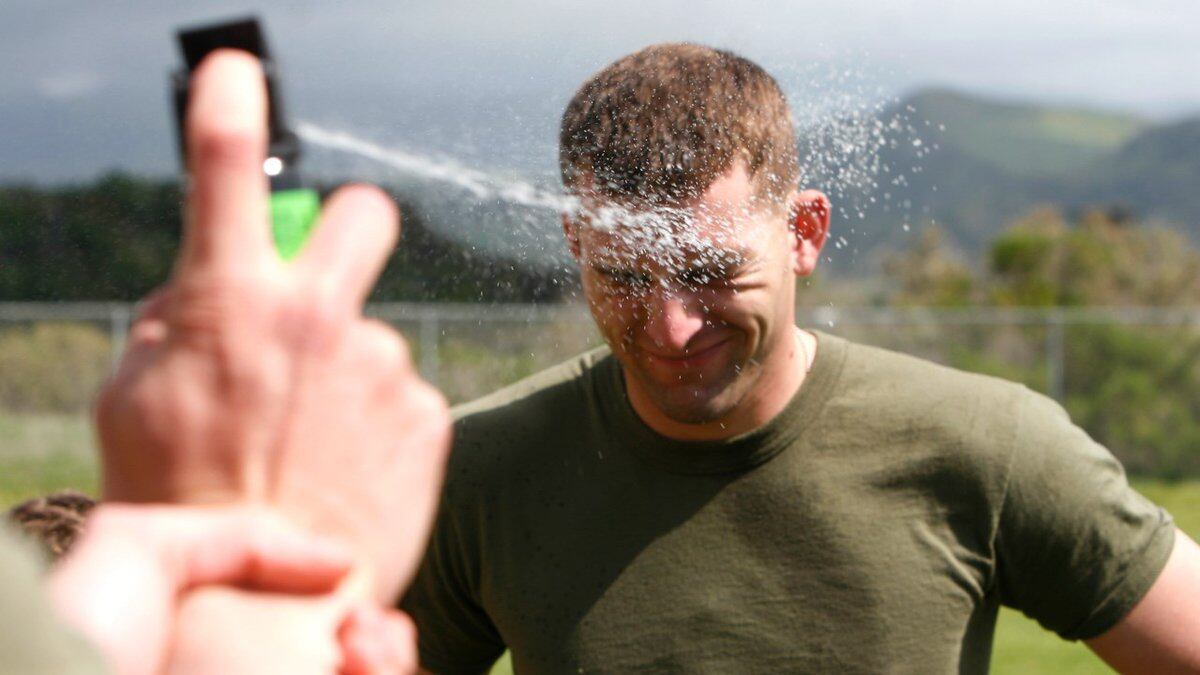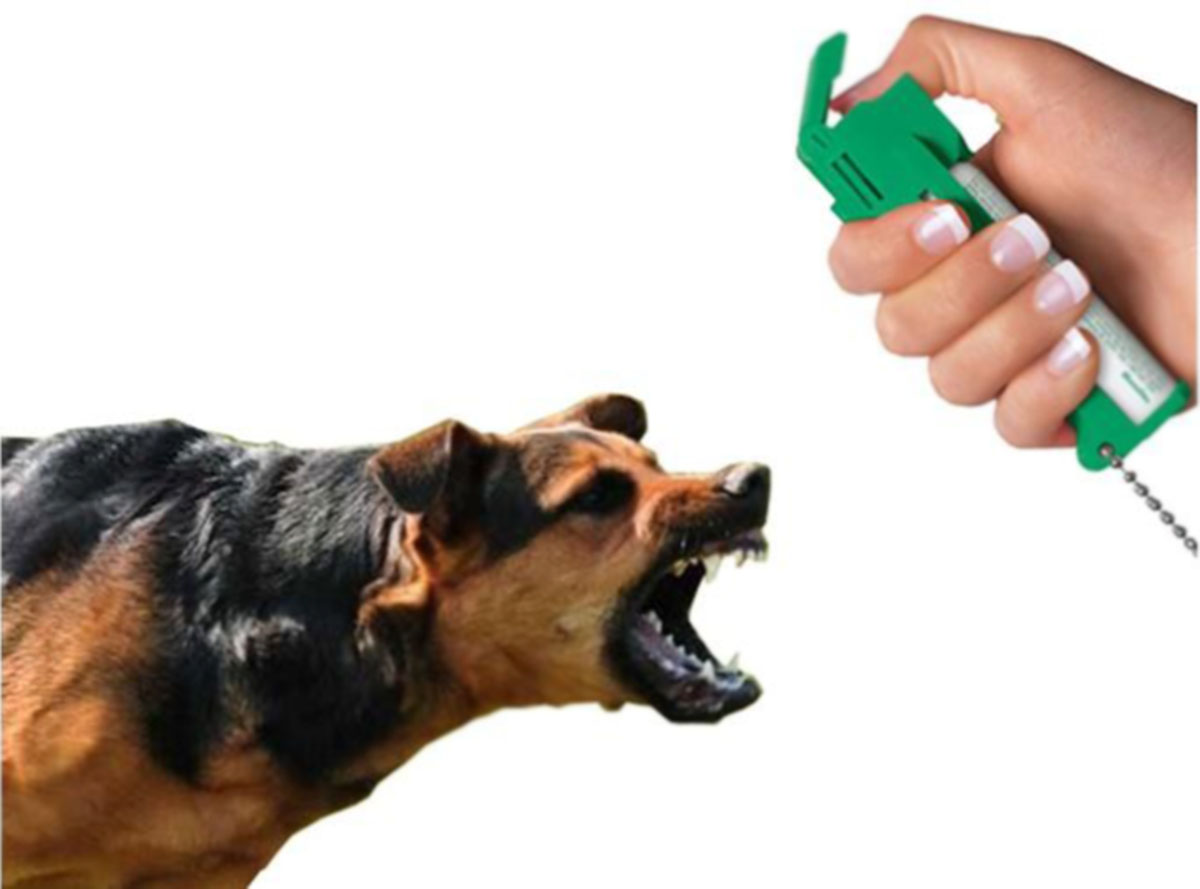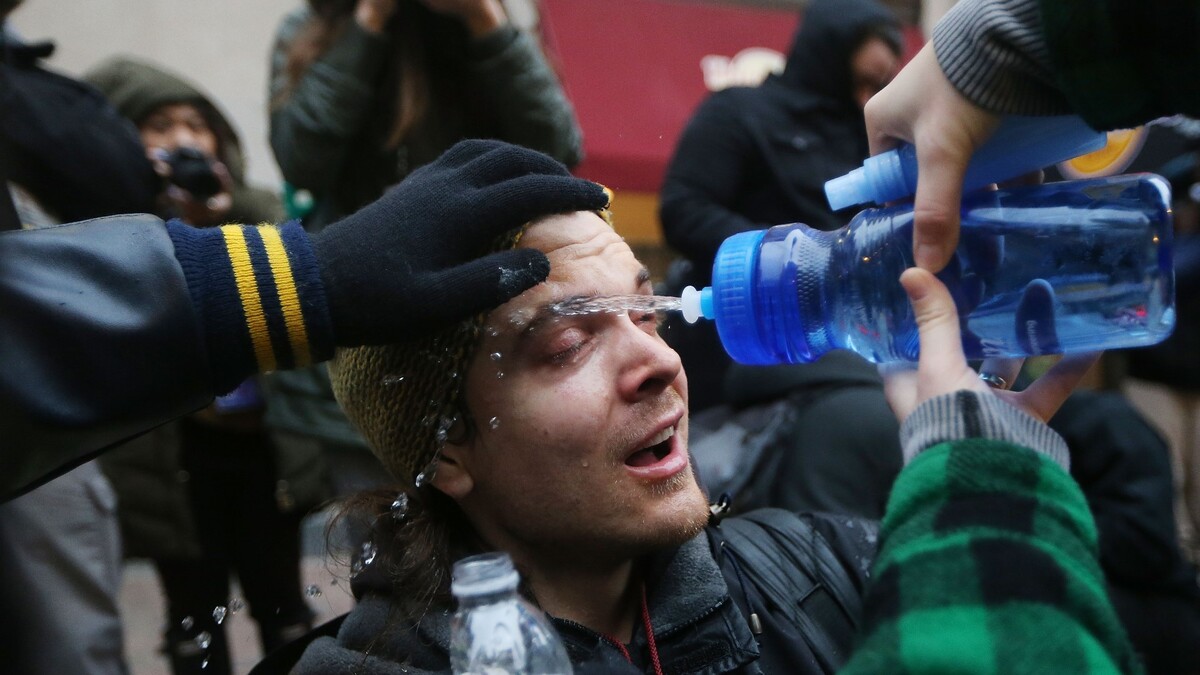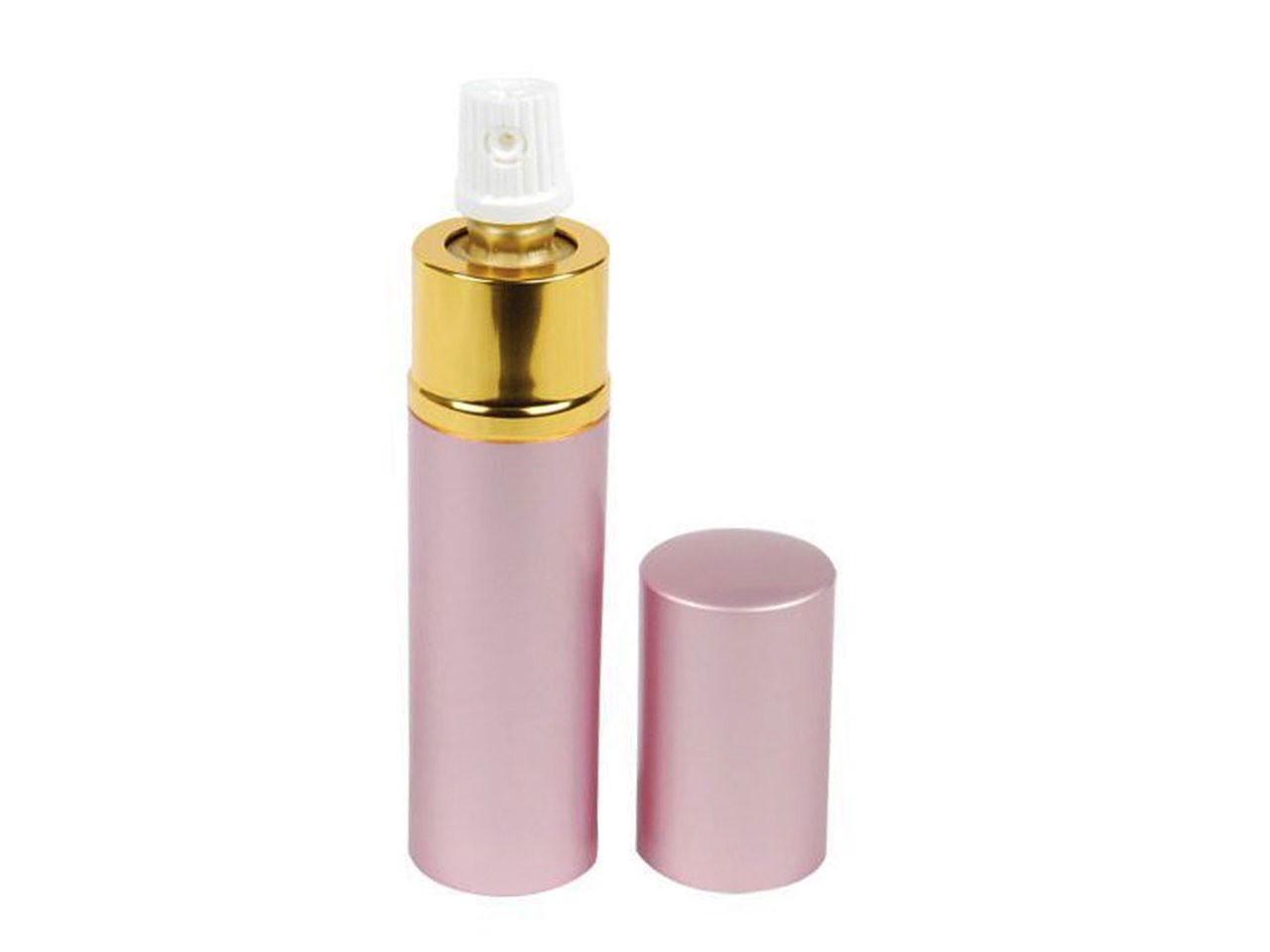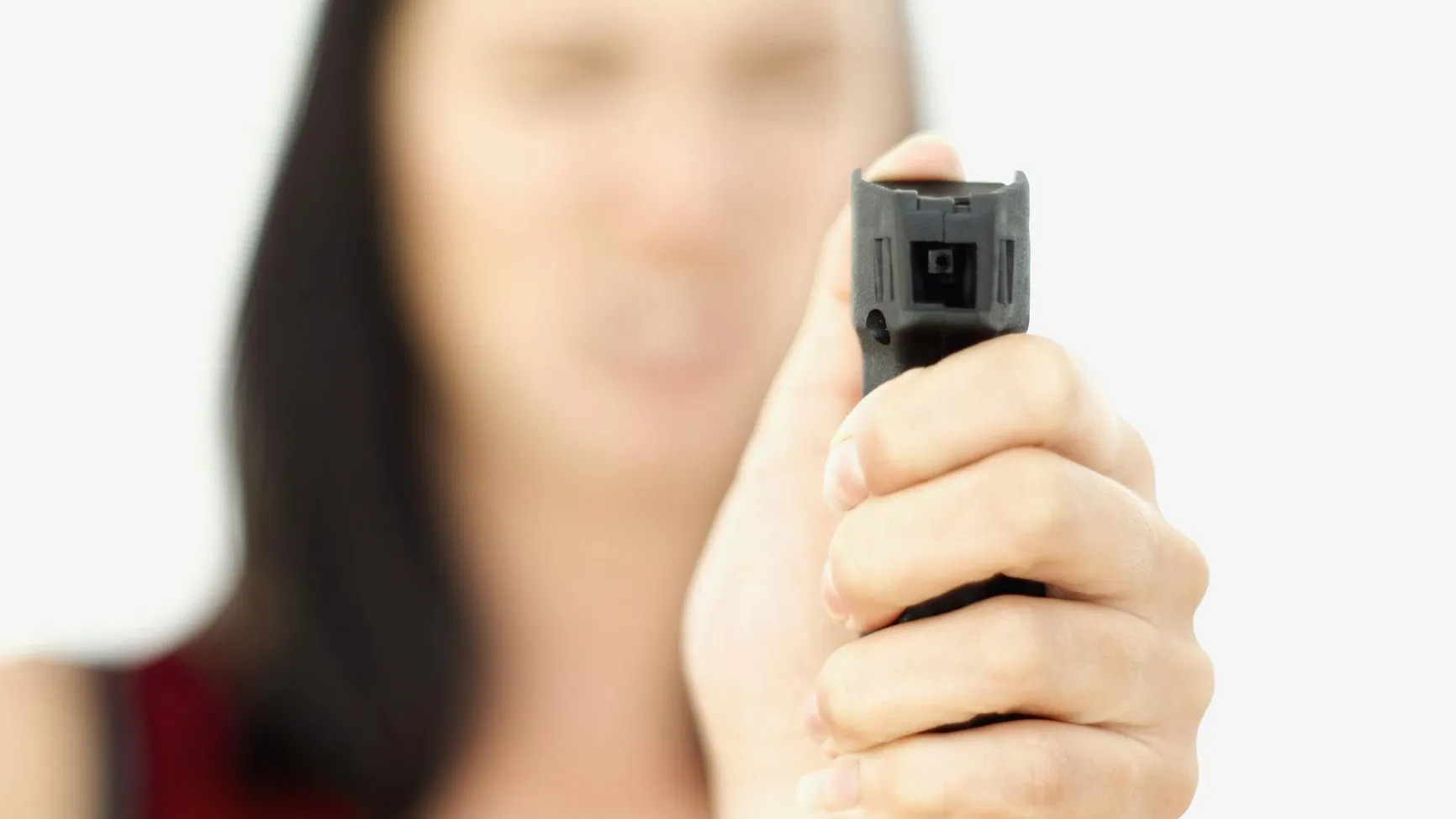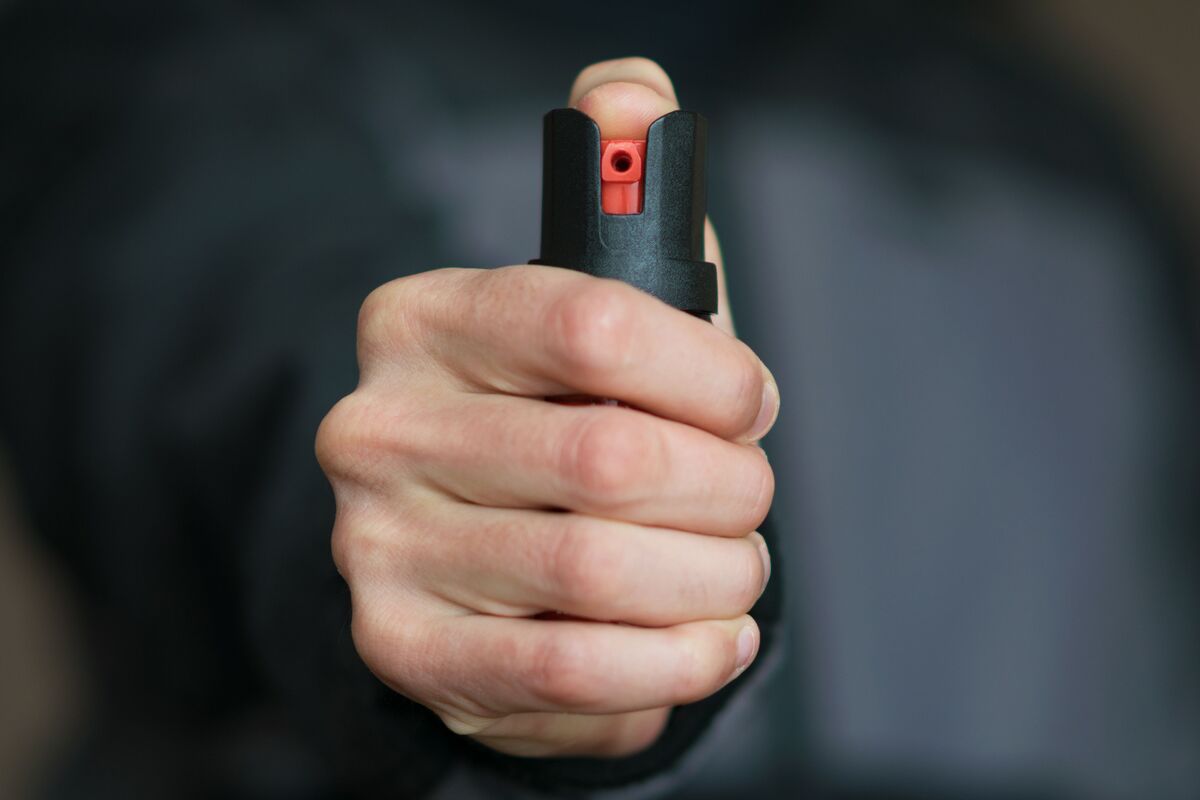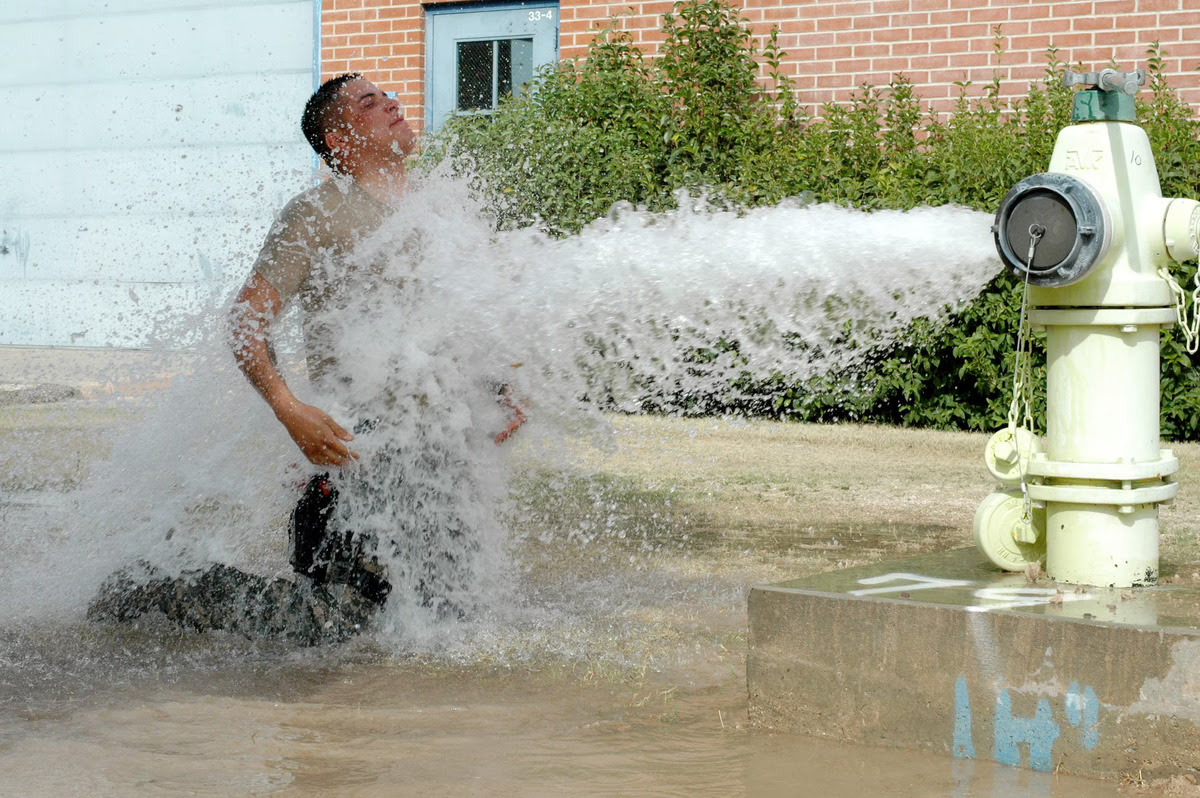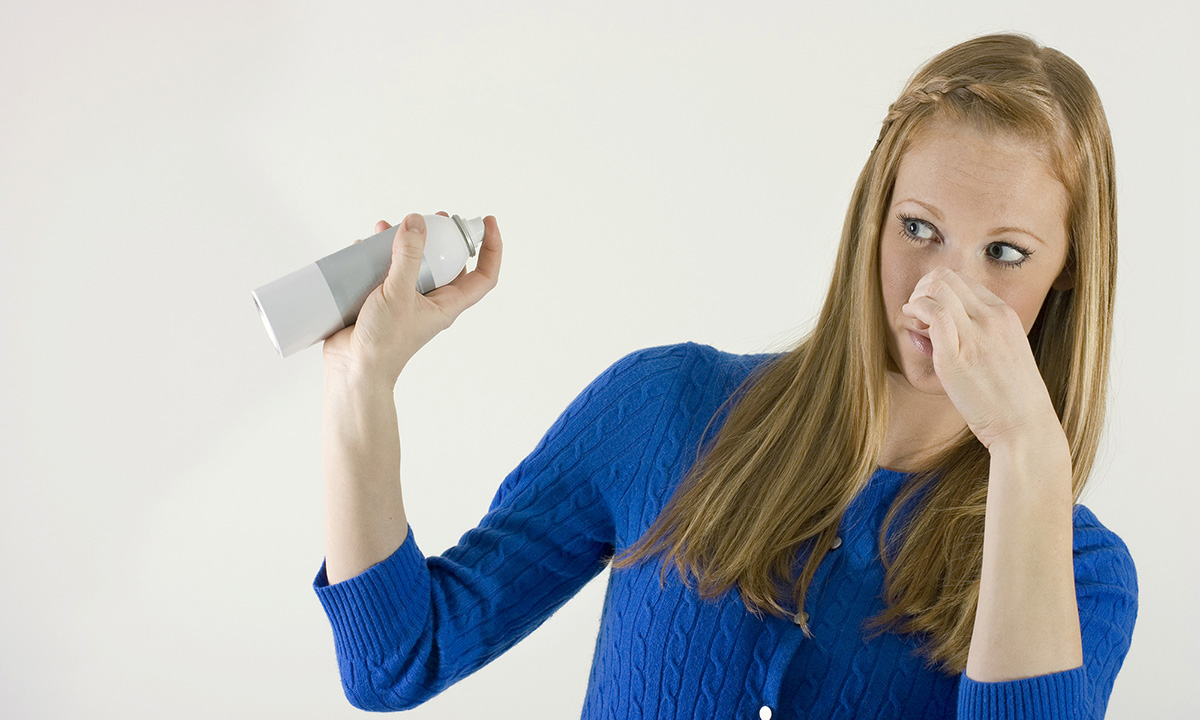Home>Home Security and Surveillance>What Happens When Pepper Spray Gets In Your Eyes
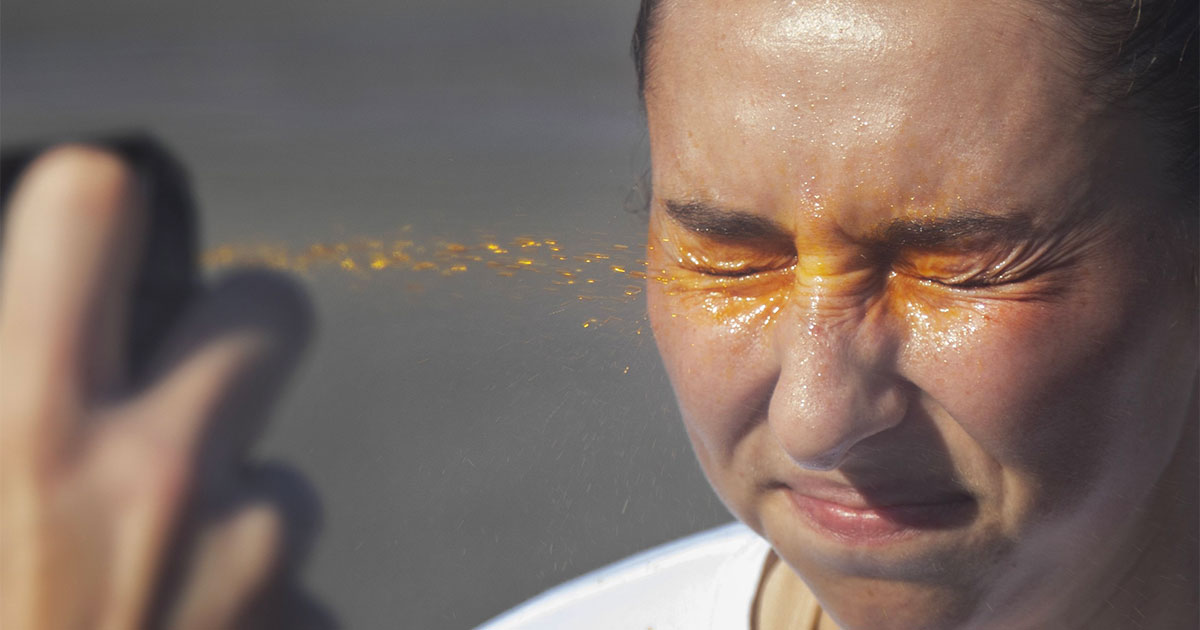

Home Security and Surveillance
What Happens When Pepper Spray Gets In Your Eyes
Modified: March 7, 2024
Discover the effects of pepper spray on your eyes and how to protect yourself at home with our comprehensive guide on home security and surveillance.
(Many of the links in this article redirect to a specific reviewed product. Your purchase of these products through affiliate links helps to generate commission for Storables.com, at no extra cost. Learn more)
Introduction
Welcome to the world of home security and surveillance, where ensuring the safety of your loved ones and your property is of utmost importance. In today’s rapidly evolving times, it has become essential to take proactive measures to protect what matters most. One crucial aspect of home security is the use of pepper spray, a non-lethal self-defense tool that has gained significant popularity.
Pepper spray, also known as OC spray (oleoresin capsicum), is a potent chemical compound derived from hot peppers. It is widely used by individuals for personal protection and by law enforcement agencies to control unruly individuals. The active ingredient in pepper spray is capsaicin, a chemical that causes intense irritation and inflammation when it comes into contact with the eyes, skin, or respiratory system.
While pepper spray can be an effective means of deterrence and self-defense, its use should be approached with caution. In this article, we will explore the effects of pepper spray on the eyes and provide information on how to mitigate its impact should you or someone you know come into contact with it.
Key Takeaways:
- Pepper spray can cause intense burning, tearing, and temporary blindness when it gets in your eyes. It’s important to seek medical help if you experience persistent symptoms or severe reactions.
- When using pepper spray, it’s crucial to follow safety precautions, such as understanding its instructions, knowing the laws, and practicing proper aim. Misuse can lead to legal consequences and harm innocent individuals.
What is pepper spray?
Pepper spray is a popular self-defense tool that has gained widespread use due to its effectiveness in incapacitating an attacker without causing long-term harm. It typically comes in a small canister that is easy to carry and deploy when needed. The main ingredient in pepper spray is capsaicin, a chemical compound found in chili peppers.
When pepper spray is sprayed in the direction of an assailant, the capsaicin irritates the mucous membranes of the eyes, nose, and throat, causing intense pain and temporary blindness. The inflammatory effects of the spray also lead to difficulty breathing, coughing, and a burning sensation on the skin.
Pepper spray is available in different formulations, with varying concentrations of capsaicin. The Scoville Heat Units (SHU) measurement is used to determine the potency of pepper spray. The higher the SHU, the hotter and more powerful the spray.
It is important to note that the use of pepper spray should be in self-defense situations only and within the boundaries of the law. Misuse of pepper spray can result in legal consequences and can cause harm to innocent individuals.
Pepper spray is most commonly used for personal protection and is readily available for purchase in many locations. It is important to familiarize yourself with the laws and regulations regarding the use and possession of pepper spray in your area before obtaining it.
Now that we have covered what pepper spray is, let’s dive into how it specifically affects the eyes and what happens when it comes into contact with them.
How does pepper spray affect the eyes?
When pepper spray comes into contact with the eyes, it causes a range of immediate effects that can be both physically and psychologically distressing. The main ingredient, capsaicin, binds to the nerve receptors in the eyes, triggering a series of reactions that result in significant discomfort and impairment.
Upon exposure to pepper spray, the eyes will typically experience intense burning, stinging, and a sensation of heat. This sensation is a result of the capsaicin irritating the sensitive tissues of the eyes, specifically the conjunctiva and cornea.
The immediate reaction of the eyes to pepper spray is the involuntary closure of the eyelids, known as forced eyelid closure. This reflexive response is the body’s attempt to protect the eyes from further exposure and mitigate the pain and discomfort.
Unfortunately, even with closed eyelids, pepper spray can still seep through and affect the eyes. This is due to the fine mist or droplets of the spray that can settle on the eyelashes and around the eye area.
In addition to the burning sensation, exposure to pepper spray can result in temporary loss of vision. The capsaicin causes the blood vessels in the eyes to dilate, leading to pronounced redness and swelling of the conjunctiva. This, combined with the intense pain, can make it difficult to keep the eyes open or focus on visual stimuli.
The effects of pepper spray on the eyes can be both immediate and long-lasting. While the immediate discomfort usually subsides within 30-45 minutes, residual effects such as redness, swelling, and blurred vision can persist for several hours.
It is important to remember that the impact of pepper spray on the eyes can vary from person to person, depending on factors such as the concentration of capsaicin, the duration of exposure, and individual sensitivity. Some individuals may experience more severe symptoms than others.
Now that we have explored the immediate effects of pepper spray on the eyes, let’s look at some home remedies you can use to alleviate the discomfort in case of exposure.
Immediate effects of pepper spray in the eyes
When pepper spray comes into contact with the eyes, it triggers a range of immediate and distressing effects. These symptoms can be quite debilitating and require immediate attention to alleviate the discomfort. Here are some of the common immediate effects of pepper spray in the eyes:
- Burning sensation: The capsaicin in pepper spray causes a burning, stinging sensation in the eyes. It can feel like a sudden and intense heat, making it difficult to keep the eyes open.
- Tearing and excessive blinking: The eyes will react to the presence of the irritant by producing tears and causing excessive blinking. This is the body’s natural defense mechanism to flush out the foreign substance.
- Redness and inflammation: The blood vessels in the eyes dilate in response to the capsaicin, leading to redness and swelling of the conjunctiva. This can contribute to the overall discomfort and make the eyes appear bloodshot.
- Blurred vision: The irritation and inflammation caused by pepper spray can result in temporary vision impairment. The eyes may struggle to focus properly, leading to blurred or double vision.
- Swelling of the eyelids: The eyelids may become swollen and puffy in response to the exposure to pepper spray. This can further contribute to the discomfort and make it challenging to open the eyes fully.
- Difficulty breathing: In some cases, the effects of pepper spray can extend beyond the eyes and affect the respiratory system. The irritant can cause coughing, wheezing, and difficulty breathing, adding to the overall distress.
If you or someone you know has been exposed to pepper spray in the eyes, it is crucial to take immediate action to minimize the effects and seek relief. In the next section, we will discuss several home remedies that can help alleviate the discomfort. However, it is important to note that these remedies are not meant to substitute professional medical advice, and seeking medical attention after exposure to pepper spray is highly recommended.
If pepper spray gets in your eyes, immediately flush them with cold water for at least 15 minutes. Do not rub your eyes, as it can spread the spray. Seek medical attention if irritation persists.
Home remedies for pepper spray in the eyes
If you find yourself dealing with the effects of pepper spray in the eyes, there are several home remedies that can provide relief and help alleviate the discomfort. Keep in mind that these remedies are not a substitute for medical advice, and seeking professional assistance is strongly recommended. Here are some home remedies you can try:
- Flush with cold water: The first and most crucial step is to flush the eyes with cold water. Use clean, cool water to rinse the affected eye(s) thoroughly. This will help wash away any remaining pepper spray residue and provide immediate relief from the burning sensation.
- Milk or dairy products: Applying milk or dairy products such as yogurt or milk-soaked cotton pads to the affected eye(s) can help neutralize the capsaicin. The proteins in dairy can help counteract the effects of the pepper spray and provide a soothing sensation. Rinse the eyes with cold water after using dairy products.
- Saline solution or eye drops: Using a sterile saline solution or over-the-counter eye drops can help flush out the irritant and provide temporary relief. Make sure to use products specifically formulated for eye irrigation and follow the instructions on the packaging.
- Cold compress: Applying a cold compress, like a clean cloth soaked in cold water or a bag of frozen vegetables wrapped in a thin towel, can help reduce inflammation and soothe the affected area. Gently place the compress over the closed eye(s) for a few minutes at a time.
- Avoid rubbing the eyes: As tempting as it may be, rubbing the eyes will only worsen the discomfort and can spread the pepper spray to other areas. It is important to resist the urge to rub or touch the eyes, as this can exacerbate the symptoms.
- Rest and relaxation: Providing adequate rest for the eyes is essential during the recovery process. Avoid exposure to bright lights and screens, and try to get enough sleep to allow the eyes to heal naturally.
Remember, while these home remedies may offer temporary relief, it is crucial to seek medical attention after exposure to pepper spray. A healthcare professional can assess the severity of the situation and provide appropriate treatment if needed.
Now that we have discussed some home remedies, let’s explore when it is necessary to seek medical assistance after exposure to pepper spray.
Seeking medical assistance after exposure to pepper spray
After exposure to pepper spray, it is strongly recommended to seek medical assistance, even if you have tried home remedies and the immediate symptoms have subsided. While most cases of pepper spray exposure resolve on their own, there are situations where medical attention may be necessary. Here are some indications that you should seek professional medical assistance:
- Persistent symptoms: If you continue to experience significant discomfort, pain, or vision problems hours after exposure to pepper spray, it is important to consult a healthcare professional. Lingering symptoms may indicate a more severe reaction or potential complications.
- Severe reaction: If you have a known sensitivity or allergy to capsaicin or have a history of severe reactions to pepper spray, it is crucial to seek medical attention immediately. Some individuals may experience anaphylaxis, a severe allergic reaction, which requires prompt medical intervention.
- Pre-existing eye conditions: If you have pre-existing eye conditions, such as glaucoma or chronic dry eyes, exposure to pepper spray can worsen these conditions. Seeking medical advice will ensure proper evaluation and appropriate treatment.
- Difficulty breathing or respiratory distress: If you experience difficulty breathing, persistent coughing, wheezing, or chest tightness after pepper spray exposure, it is essential to seek immediate medical attention. These symptoms may indicate a more severe reaction affecting the respiratory system.
- Eye injury: If there is any evidence of eye injury, such as cuts, scratches, or foreign objects in the eye, it is crucial to have a professional evaluate and treat the injury. Pepper spray can exacerbate existing eye injuries and delay the healing process.
- Uncertainty about the severity: If you are unsure about the severity of your symptoms or have any concerns regarding the effects of pepper spray exposure, it is always better to err on the side of caution and seek medical advice.
Remember, medical professionals have the knowledge and expertise to properly assess your condition and provide appropriate care. They can also offer guidance on follow-up care and offer treatments to alleviate any lingering effects. Do not hesitate to reach out to your healthcare provider or visit an emergency room if needed.
In the next section, let’s discuss some precautions to take while using pepper spray to minimize the risk of exposure and potential harm.
Precautions to take while using pepper spray
While pepper spray can be an effective self-defense tool, it is important to take certain precautions to ensure its safe and responsible use. Here are some key precautions to keep in mind when using pepper spray:
- Read and understand the instructions: Before using pepper spray, thoroughly read and understand the instructions provided by the manufacturer. Familiarize yourself with the proper usage, range, and safety precautions.
- Know the laws and regulations: Research and familiarize yourself with the laws and regulations regarding the purchase, possession, and use of pepper spray in your area. Adhere to these guidelines to avoid legal consequences.
- Practice proper aim and distance: When using pepper spray, aim for the assailant’s face, specifically the eyes, nose, and mouth. Maintain a safe distance to ensure the spray reaches the intended target effectively.
- Consider wind direction: Take into account the wind direction when deploying pepper spray. It is important to avoid spraying against the wind, as it can blow the spray back towards you, causing potential exposure.
- Keep it easily accessible: Keep your pepper spray in a readily accessible location, such as a keychain or belt holster. This ensures that you can deploy it quickly and efficiently in a self-defense situation.
- Practice using it: Familiarize yourself with your pepper spray by practicing how to activate and aim it. This will help build confidence and ensure you can effectively use it in an emergency.
- Keep away from children: Store pepper spray in a secure place out of reach of children. Educate family members on its proper use, emphasizing that it is not a toy and should only be used in self-defense situations.
- Check expiration dates: Pepper spray can lose its effectiveness over time, so regularly check the expiration date and replace it when necessary. Expired pepper spray may not have the same potency and may not provide the desired protection.
- Inform authorities after use: If you use pepper spray in a self-defense situation, it is important to immediately report the incident to the appropriate authorities. Provide them with all relevant information and cooperate fully with their investigation.
By following these precautions, you can help ensure the safe and responsible use of pepper spray while maximizing its effectiveness in self-defense situations.
To conclude, pepper spray can be an effective tool for personal protection. Understanding how it affects the eyes and knowing how to mitigate its impact is crucial. However, it is essential to exercise caution, use pepper spray responsibly, and seek medical attention when necessary. By taking these precautions, you can enhance your personal safety and security.
Conclusion
Throughout this article, we have delved into the world of home security and surveillance, focusing specifically on the topic of pepper spray and its effects on the eyes. Pepper spray, a non-lethal self-defense tool, contains capsaicin, a potent irritant derived from hot peppers. When pepper spray makes contact with the eyes, it causes an array of immediate effects, including intense burning, tearing, and temporary blindness.
While there are home remedies available to alleviate the discomfort of pepper spray exposure, seeking professional medical assistance is highly recommended. Persistent symptoms, severe reactions, pre-existing eye conditions, and respiratory distress are all indications that medical attention should be sought immediately.
To ensure the responsible use of pepper spray, it is important to understand and adhere to precautions. These precautions include reading and understanding the instructions, knowing the laws and regulations, practicing proper aim and distance, considering wind direction, keeping it easily accessible, practicing its use, storing it safely away from children, checking expiration dates, and informing authorities after its use.
Remember, the goal of using pepper spray is to enhance personal safety and security. It is crucial to use it responsibly, for self-defense purposes only, and within the boundaries of the law. Misuse can lead to legal consequences and potential harm to innocent individuals.
By arming yourself with knowledge about pepper spray, its effects on the eyes, and the precautions to take, you can make informed decisions to protect yourself and your loved ones. While pepper spray can be a valuable tool in your home security arsenal, it is essential to prioritize safety, exercise caution, and seek professional assistance when needed.
Stay informed, stay safe, and make pepper spray a part of your comprehensive home security plan.
Frequently Asked Questions about What Happens When Pepper Spray Gets In Your Eyes
Was this page helpful?
At Storables.com, we guarantee accurate and reliable information. Our content, validated by Expert Board Contributors, is crafted following stringent Editorial Policies. We're committed to providing you with well-researched, expert-backed insights for all your informational needs.
